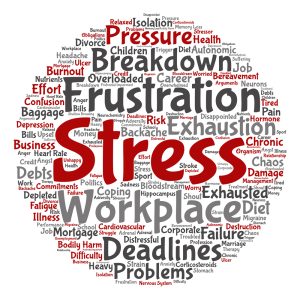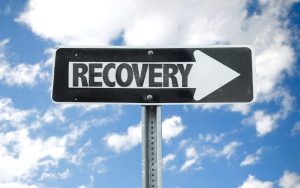The Importance of Biblical Counseling in Today’s World
Biblical counseling plays a crucial role in today’s world, providing guidance and support based on the principles and teachings of the Bible. In a society that is increasingly complex and challenging, biblical counseling offers a solid foundation for individuals seeking healing, transformation, and spiritual growth. This article explores the historical roots, theological foundation, practical application, benefits, and challenges of biblical counseling, highlighting key takeaways that emphasize its significance in addressing the needs of individuals and communities.

Key Takeaways
- Biblical counseling has its historical roots in early church fathers, the Reformation, and the development of modern biblical counseling.
- The authority of Scripture, the doctrine of sin, and the person and work of Christ form the theological foundation of biblical counseling.
- Prayer, Scripture, and the role of the Holy Spirit are essential components in the practical application of biblical counseling.
- Biblical counseling brings about spiritual transformation and growth, integrates faith and psychology, and facilitates long-term and lasting change.
- Biblical counseling faces challenges in addressing the role of psychology and science, the limitations of a biblical approach, and cultural and contextual issues.
The Historical Roots of Biblical Counseling
The Influence of Early Church Fathers
The influence of early church fathers on biblical counseling cannot be overstated. These early leaders of the Christian faith played a crucial role in shaping the theological and practical foundations of counseling based on biblical principles. They provided valuable insights and guidance on how to address the spiritual and emotional needs of individuals and communities. One of the key contributions of the early church fathers was their emphasis on the authority of Scripture as the ultimate source of truth and guidance for counseling. They recognized the transformative power of God’s Word in bringing healing and restoration to broken lives.
The Role of the Reformation
The Reformation was a pivotal moment in the history of the church, shaping the course of Christianity for centuries to come. It was a movement that sought to reform and purify the church, challenging the authority and practices of the Roman Catholic Church. Martin Luther and other reformers emphasized the sola scriptura principle, asserting the authority of Scripture as the ultimate guide for faith and practice.
One of the key contributions of the Reformation was the translation of the Bible into vernacular languages, making it accessible to the common people. This democratization of Scripture empowered individuals to read and interpret the Word of God for themselves, leading to a greater emphasis on personal piety and spiritual growth.
The Reformation also brought about significant changes in the understanding of salvation. The reformers emphasized the doctrine of justification by faith alone, rejecting the notion that salvation could be earned through good works. This shift in theological perspective had profound implications for counseling, as it emphasized the need for individuals to place their trust in Christ alone for salvation and to find their identity and worth in Him.
In addition, the Reformation challenged the hierarchical structure of the church and emphasized the priesthood of all believers. This had implications for counseling, as it recognized the role of the community of believers in providing support, encouragement, and accountability. The reformers emphasized the importance of discipleship and spiritual formation, recognizing that growth in the Christian life is a lifelong process that requires ongoing guidance and support.
Overall, the Reformation had a profound impact on the development of biblical counseling. It laid the foundation for a counseling approach that is rooted in Scripture, emphasizes the centrality of Christ, and recognizes the importance of the community of believers in the process of spiritual growth and transformation.
The Development of Modern Biblical Counseling
The development of modern biblical counseling has been a significant milestone in the field of counseling. As biblical counseling gained recognition and popularity, it emerged as an alternative approach to secular counseling. This approach emphasizes the authority of Scripture and seeks to integrate biblical principles into the counseling process.
One of the key figures in the development of modern biblical counseling is Jay Adams. Adams, a pioneer in the field, introduced the concept of Nouthetic Counseling. Nouthetic Counseling focuses on addressing personal and relational issues from a biblical perspective.
Another influential figure in modern biblical counseling is O. Hobart Mowrer. Mowrer’s model of moral behavioral psychology was evaluated from a biblical standpoint by Jay Adams. Adams examined the relationship between Mowrer’s model and the modern Nouthetic Counseling movement.
The development of modern biblical counseling has provided individuals with a foundational, unifying diagnosis and cure that offers hope for deep and lasting freedom. It offers an alternative to the ever-increasing complexity of secular counseling labels and methodologies. By integrating faith and psychology, biblical counseling aims to bring about spiritual transformation and growth.
The Theological Foundation of Biblical Counseling
The Authority of Scripture
In our understanding of biblical counseling, the authority of Scripture holds utmost importance. As believers, we recognize the Bible as the inspired and infallible Word of God, containing the ultimate truth and guidance for all aspects of life. The authority of Scripture means that it has the final say in matters of faith, doctrine, and practical application. We approach counseling from a perspective that acknowledges the Bible as the ultimate source of wisdom and truth.

When we submit to the authority of Scripture, we recognize that it surpasses any human wisdom or opinion. It is the standard by which we measure our thoughts, beliefs, and actions. This recognition leads us to rely on the timeless principles and teachings found in the Bible when providing counseling to individuals.
Table: Key Principles of the Authority of Scripture
| Principle | Description |
|---|---|
| Infallibility | The Bible is without error or contradiction. |
| Sufficiency | The Bible contains everything necessary for salvation and godly living. |
| Clarity | The Bible is clear and understandable to all believers. |
| Finality | The Bible is the ultimate authority and has the final say in all matters of faith and practice. |
By upholding the authority of Scripture, we ensure that our counseling is rooted in the unchanging truth of God’s Word. It provides a solid foundation for addressing the challenges and complexities individuals face in today’s world.
The Doctrine of Sin
Sin is our deepest problem. Jesus is our only Savior. We receive and live out this saving grace through justifying and sanctifying faith. Sin affects not only the individual but also those around them. As sin grows, it spills over onto our loved ones and those in our circle. It has the power to change their day with an angry outburst or even change their life through choices like adultery. It is important to evaluate and examine our own behavior in light of the concept of sin. Are we choosing to sin in the struggles we face? Are we responding in a biblical and loving manner? The root problem is not just sin, but sin, self, and strongholds. The remedial process is not just sanctification by faith, but Christ-centered sanctification by faith, oriented around Jesus Christ as Lamb, Lord, Life, Liberator, and Leader. This relationship is experienced in redemption, identification, liberation, and devotion. The Holy Spirit serves as the Ultimate Therapist, ministering to and through the Discipleship Counselor and counselee. It is crucial to understand the impact of sin and the need for Christ-centered sanctification in biblical counseling.
The Person and Work of Christ
In understanding the person and work of Christ, we are reminded of the profound impact that our works for Christ can have on the lives of others. While our names may be quickly forgotten on earth, the impact of our works for Christ will leave a lasting legacy on the families that turn to Christ and walk with Him because of our courage to speak up and our obedience to serve Christ instead of self. This echoes the words of Ephesians 2:8-10, which remind us that we are saved by grace through faith, not by our own works. We are His workmanship, created in Christ Jesus for good works, which God prepared beforehand for us to walk in.
As believers, we are called to keep our eyes on things eternal and to continue doing the good works that the Lord has prepared for us. We have the opportunity to share the Gospel, support and encourage fellow believers, and point people to Christ. While our impact may not always be immediately visible or recognized, we can trust that our works for Christ have a lasting impact. It is through the power of the Holy Spirit that true transformation and healing occur, as we surrender ourselves to the Lord and allow Him to work in and through us.
In our pursuit of biblical counseling, we must remember that true freedom and liberation come from Christ. It is through Him that we experience inner freedom, which empowers us to care for others and live out the way of life exemplified by Jesus. Christians understand Jesus to be the human revelation of the invisible God, and His life serves as a model for us to follow. By embracing the teachings of Christ and allowing the Holy Spirit to work in us, we can become agents of change and bring hope and healing to those we counsel.
In conclusion, the person and work of Christ are foundational to biblical counseling. Our works for Christ have a lasting impact on the lives of others, and it is through Him that true transformation and freedom are found. As we continue to walk in the good works prepared for us, may we keep our eyes on things eternal and trust in the power of the Holy Spirit to bring about change in the lives of those we counsel.
The Practical Application of Biblical Counseling
The Importance of Prayer and Scripture
In our journey of biblical counseling, we have come to recognize the vital role that prayer and Scripture play in the process of healing and transformation. Prayer is not merely a religious ritual, but a powerful means of communication with God. It is through prayer that we seek His guidance, wisdom, and intervention in the lives of those we counsel.

Scripture, on the other hand, serves as the foundation and authority for our counseling approach. It is the inspired Word of God, containing timeless truths and principles that are relevant to every aspect of human life. By studying and applying Scripture, we gain insight into the nature of sin, the character of God, and the redemptive work of Christ.
As we engage in biblical counseling, we encourage individuals to develop a habit of regular prayer and Scripture reading. This practice not only deepens their relationship with God, but also provides them with a source of comfort, guidance, and hope. Through prayer and Scripture, individuals are able to find solace in times of distress, gain clarity in decision-making, and experience spiritual growth.
In addition to personal prayer and Scripture reading, we also emphasize the importance of incorporating these practices into counseling sessions. We encourage individuals to bring their concerns, struggles, and questions to God in prayer, and to seek His guidance through the study and application of Scripture. By doing so, they are able to tap into the transformative power of prayer and Scripture in the context of their counseling journey.
In conclusion, prayer and Scripture are essential components of biblical counseling. They provide individuals with a means of connecting with God, gaining insight into His truth, and experiencing His transformative work in their lives. As counselors, we recognize the importance of fostering a prayerful and scriptural foundation in our counseling approach, and we encourage individuals to embrace these practices as they seek healing, growth, and lasting change.
The Role of the Holy Spirit
The role of the Holy Spirit in biblical counseling is of utmost importance. As believers, we recognize the Holy Spirit as God’s perfecting presence in creation, redemption, and everyday life. The Holy Spirit is the means by which God ministers the truths of Scripture to our hearts and minds.
One important aspect of the Holy Spirit’s role in counseling is the illumination of truth. The Holy Spirit helps us understand and apply the teachings of Scripture to our specific situations. Through prayerful study and reliance on the Holy Spirit, we can gain a deeper understanding of God’s Word and its relevance to our lives.
In addition to illuminating truth, the Holy Spirit also empowers believers to live out the principles of biblical counseling. The Holy Spirit enables us to experience spiritual transformation and growth, as we surrender to His guidance and allow Him to work in and through us.
It is important to note that biblical counseling is not solely reliant on human wisdom or techniques. Rather, it is a partnership between the counselor and the Holy Spirit, with the Holy Spirit leading and empowering the counseling process.
In conclusion, the role of the Holy Spirit in biblical counseling cannot be overstated. The Holy Spirit is our guide, teacher, and empowerer, enabling us to apply the truths of Scripture to our lives and experience lasting change. As counselors, we must rely on the Holy Spirit’s guidance and seek His wisdom in every counseling session.
The Use of Biblical Principles in Counseling
When applying biblical principles in counseling, we prioritize the truths of God’s Word. It is essential to have a humble and willing spirit, seeking discernment in choosing the right counselors. Many individuals claim to be ‘biblical counselors’ but have absorbed worldly philosophies, such as the invasive and destructive philosophy of self-esteem. We must be cautious and ensure that the counseling we receive aligns with the teachings of Scripture.
In counseling, it is important to approach difficult situations with the mindset of growth and perseverance. Rather than giving up, we can allow challenging circumstances to shape and refine us, as James encourages us. However, it is crucial to remember that biblical counseling is not a guarantee for immediate improvement or resolution. Our ultimate goal should not be solely focused on relieving our burdens, but on remaining faithful to God’s Word and His principles.
To effectively apply biblical principles in counseling, we can consider the following practical tips:
- Listen attentively to the concerns and struggles of those seeking counseling.
- Show empathy and understanding towards their experiences.
- Refer to professional counselors with specialized training when necessary.
- Avoid being judgmental and instead offer grace and compassion.
- Keep Jesus at the center of the counseling process, recognizing His role as the ultimate source of healing and transformation.
It is important to be aware of the limitations and flaws within the field of psychology and counseling. While secular counseling may offer various diagnostic labels and methodologies, biblical counseling emphasizes the simplicity and profound wisdom found in God’s Word. By aligning our counseling practices with biblical principles, we can provide guidance and support that leads to spiritual transformation and lasting change.
The Benefits of Biblical Counseling
Spiritual Transformation and Growth
In the realm of Christian-based spiritual growth, spiritual transformation is a central goal. It is the process by which individuals experience a profound change in their inner being, leading to a closer relationship with God and a greater conformity to His image. This transformation encompasses various aspects of a person’s life, including their thoughts, emotions, behaviors, and relationships.

One important aspect of spiritual transformation is the recognition of God’s faithfulness and His work in one’s life. Journaling can be a valuable tool in this process, allowing individuals to reflect on their experiences and express gratitude for God’s guidance and provision. As one writer suggests, “Learn to see journaling as a way to speak of God’s faithfulness in life with the intent to glorify Him.”[1]
To facilitate spiritual transformation, it is essential to engage in practices that nurture spiritual growth. These practices include regular prayer and meditation on Scripture, which provide opportunities for individuals to connect with God, seek His guidance, and gain wisdom for their journey. Additionally, the role of the Holy Spirit cannot be overstated in the process of transformation. The Holy Spirit empowers believers, convicts them of sin, and enables them to live in alignment with God’s will.
Furthermore, biblical counseling emphasizes the use of biblical principles in counseling sessions. These principles serve as a guide for addressing various issues and challenges that individuals may face. By integrating biblical wisdom and insights into the counseling process, individuals can find guidance, healing, and restoration.
In summary, spiritual transformation and growth are foundational aspects of Christian-based counseling. Through practices such as journaling, prayer, meditation, and the application of biblical principles, individuals can experience a deepening relationship with God and a transformative change in their lives.
Integration of Faith and Psychology
The integration of faith and psychology is a topic of great significance in the field of counseling. As Christian counselors, we recognize the importance of incorporating our clients’ faith into the therapeutic process. By integrating faith in clinical practice, we understand that intentional, prayerful integration is key, whether it is implicitly or explicitly performed. This means that we actively seek to explore and address the spiritual aspects of our clients’ lives, while also utilizing psychological principles and techniques to promote healing and growth.
In our counseling sessions, we create a safe and understanding space where clients can openly discuss their faith and relationship with God. We acknowledge that faith can be a central part of our clients’ lives and that it plays a significant role in their overall well-being. By addressing challenges, fears, and fostering personal and spiritual growth within a Christian context, we aim to support our clients in their journey towards wholeness and fulfillment.
To ensure the effectiveness of the integration of faith and psychology, we employ evidence-based practices that are grounded in both biblical principles and psychological research. This allows us to provide a comprehensive and holistic approach to counseling that addresses the unique needs and concerns of each individual. By combining the wisdom of scripture with the insights of psychology, we strive to help our clients achieve long-term and lasting change in their lives.
In summary, the integration of faith and psychology in counseling is a vital aspect of our practice. We recognize the significance of our clients’ faith and actively incorporate it into the therapeutic process. By creating a safe and understanding space, utilizing evidence-based practices, and addressing the spiritual aspects of our clients’ lives, we aim to support their personal and spiritual growth.
Long-Term and Lasting Change
Long-term and lasting change is a fundamental goal of biblical counseling. Change is not merely a temporary fix or a quick solution to surface-level problems. Instead, it is a lifelong process that requires ongoing dependence on Christ and the support of a Christian community. Through authentic relationships and a deep understanding of biblical principles, individuals can experience transformation that goes beyond superficial changes. This type of change has a lasting impact on every aspect of a person’s life, including their thoughts, emotions, behaviors, and relationships.
The Challenges and Criticisms of Biblical Counseling
The Role of Psychology and Science
The role of psychology and science in biblical counseling is a topic of much debate and discussion. While some argue that psychology and science can provide valuable insights and tools for counseling, others believe that these disciplines are fundamentally at odds with the teachings of the Bible. As proponents of biblical counseling, we take the position that psychology and science should be approached with caution and discernment, recognizing their limitations and potential conflicts with biblical principles.
It is important to acknowledge that psychology is a human-made discipline, based on theories and observations of human behavior. As such, it is subject to the flaws and limitations inherent in any human endeavor. While psychology can offer helpful insights into the human mind and behavior, it is not infallible and should not be treated as the ultimate authority.
At the same time, we recognize that there may be areas of overlap between psychology and biblical counseling. For example, both disciplines may emphasize the importance of understanding and addressing the root causes of emotional and psychological struggles. However, it is crucial to approach these areas of overlap with discernment, filtering them through the lens of Scripture and relying primarily on biblical principles and teachings.
In our approach to counseling, we prioritize the authority of Scripture and the guidance of the Holy Spirit. We believe that the Word of God provides the ultimate source of truth and wisdom for addressing the complexities of human life and relationships. While psychology and science can offer valuable insights, they should always be evaluated in light of biblical teachings and used in a way that aligns with God’s Word.
In summary, the role of psychology and science in biblical counseling is a complex and nuanced topic. While we recognize the potential benefits of these disciplines, we approach them with caution and discernment, prioritizing the authority of Scripture and the guidance of the Holy Spirit.
The Limitations of a Biblical Approach
While biblical counseling can be helpful in many ways, it is important to acknowledge its limitations. One of the main limitations is the lack of integration with psychology and science. The field of psychology offers valuable insights into human behavior and mental health, but it may conflict with certain biblical principles. This can make it challenging to address complex issues that require a more comprehensive understanding of the human mind and emotions.
Another limitation is the restricted treatment options. Biblical counseling primarily relies on prayer, Scripture, and biblical principles as the main tools for counseling. While these can be effective for spiritual growth and transformation, they may not always be sufficient for addressing certain mental health conditions that may require additional interventions.
It is also important to note that biblical counseling may not be suitable for everyone. Some individuals may prefer a more secular approach that incorporates psychological theories and techniques. Additionally, cultural and contextual factors can influence the effectiveness of biblical counseling, as different cultures and contexts may have varying beliefs and practices.
In conclusion, while biblical counseling has its strengths, it is essential to recognize its limitations and consider alternative approaches when necessary.
Addressing Cultural and Contextual Issues
In addressing cultural and contextual issues, it is important for us as biblical counselors to recognize the diverse backgrounds and experiences of the individuals we are counseling. Cultural sensitivity plays a crucial role in understanding the unique challenges and perspectives that clients bring to the counseling process.
One approach to addressing cultural and contextual issues is through cultural competence. This involves developing an awareness and understanding of different cultural norms, values, and beliefs, and how they may impact an individual’s mental health and well-being.
To effectively address cultural and contextual issues, it is essential to engage in cultural humility. This means recognizing our own limitations and biases, and being open to learning from and collaborating with clients from different cultural backgrounds.
Additionally, it is important to consider the intersectionality of various identities and experiences, such as race, ethnicity, gender, and socioeconomic status. This intersectionality can influence how individuals perceive and experience mental health issues, and it is crucial to take these factors into account in the counseling process.
In summary, addressing cultural and contextual issues requires a commitment to cultural sensitivity, cultural competence, cultural humility, and an understanding of intersectionality. By incorporating these principles into our counseling practice, we can better serve the diverse needs of our clients and promote holistic healing and growth.
Biblical counseling has long been a cornerstone of Christian faith, providing guidance and support to individuals seeking spiritual healing. However, it is not without its challenges and criticisms. Critics argue that biblical counseling may not always address the complex psychological and emotional needs of individuals, and that a more integrated approach may be necessary. Despite these criticisms, many individuals find solace and strength in the teachings of the Bible and the guidance of Christian counselors. If you are seeking certification in Christian counseling, look no further than our website, Christian Counseling Certification. Our online program offers continuing education courses that will lead you to certification in Spiritual Counseling. Connect with us today and embark on a journey of helping others find spiritual healing and guidance.
Conclusion
In conclusion, biblical counseling plays a crucial role in today’s world by providing a solid foundation rooted in the teachings of Scripture. It offers a counterbalance to the complexities and flawed methodologies of secular counseling. By approaching counseling with a humble and discerning spirit, individuals can find guidance and healing that aligns with God’s Word. However, it is important to be cautious of those who claim to be biblical counselors but have absorbed worldly philosophies. The journey of biblical counseling may be challenging, but it offers the opportunity for personal growth and a deeper relationship with God. As we navigate the complexities of life, let us embrace the importance of biblical counseling and its transformative power in our lives.

Please also review AIHCP’s Christian Counseling Certification. The program is online and independent study and open to qualified professionals seeking a four year certification in Christian Counseling.
Frequently Asked Questions
What is biblical counseling?
Biblical counseling is a form of counseling that is based on the principles and teachings of the Bible. It seeks to address the spiritual, emotional, and relational needs of individuals from a biblical perspective.
How is biblical counseling different from secular counseling?
Biblical counseling differs from secular counseling in its foundation and approach. While secular counseling may rely on psychological theories and techniques, biblical counseling is rooted in the authority of Scripture and seeks to apply biblical principles to the counseling process.
Who can benefit from biblical counseling?
Anyone who is seeking guidance, support, and healing from a biblical perspective can benefit from biblical counseling. It is not limited to individuals with specific religious beliefs, but rather welcomes anyone who is open to exploring the teachings of the Bible.
What are the key principles of biblical counseling?
The key principles of biblical counseling include the authority of Scripture, the doctrine of sin, and the person and work of Christ. These principles provide a foundation for understanding human nature, addressing problems, and pursuing spiritual transformation.
Is biblical counseling effective?
Biblical counseling has been shown to be effective in helping individuals find healing, restoration, and spiritual growth. It provides a holistic approach that addresses the root causes of problems and offers guidance based on timeless biblical wisdom.
Can biblical counseling be integrated with other forms of counseling?
Yes, biblical counseling can be integrated with other forms of counseling, such as cognitive-behavioral therapy or family systems therapy. The goal is to incorporate biblical principles and teachings into the counseling process while respecting the individual’s unique needs and circumstances.
What role does prayer play in biblical counseling?
Prayer is an integral part of biblical counseling, as it acknowledges our dependence on God and invites His presence and guidance in the counseling process. Prayer provides a means of seeking wisdom, comfort, and transformation through a personal relationship with God.
How long does biblical counseling typically last?
The duration of biblical counseling can vary depending on the individual’s needs and progress. Some counseling relationships may last a few weeks or months, while others may continue for a longer period of time. The focus is on achieving lasting change and growth.
Again, please review AIHCP’s Christian Counseling Certification and see if it meets your academic and professional goals.
Additional Resources
“A Biblical Counseling Perspective on Mental Illness”. Kellemen, B. (2013). Biblical Counseling Coalition. Access here
“Modern Problems: Caring for Souls in the 21st Century”. Christian Counseling and Education Foundation. (2021). Biblical Counseling Coalition. Access here
“Christian Counseling”. Psychology Today Staff. Psychology Today. Access here
“What Is Christian Counseling?”. Blain, T. (2023). VeryWellMind. Access here

















